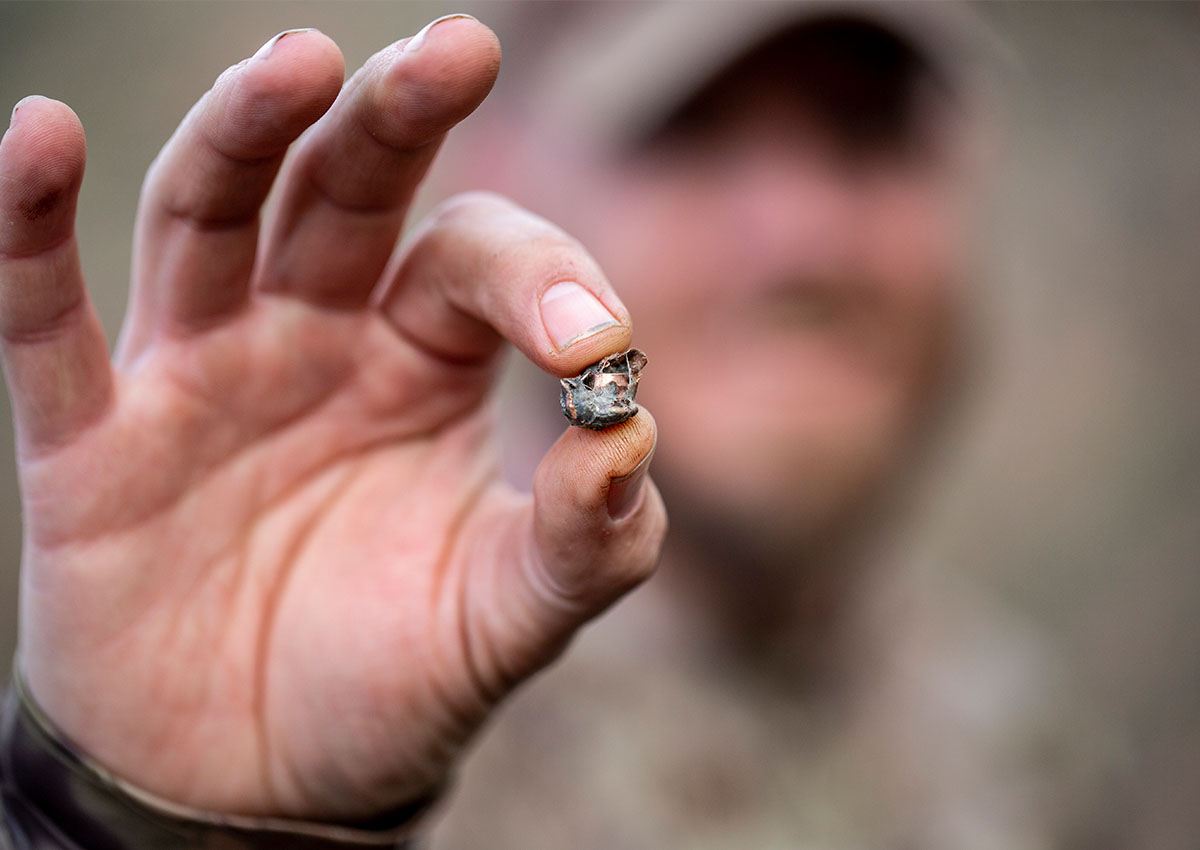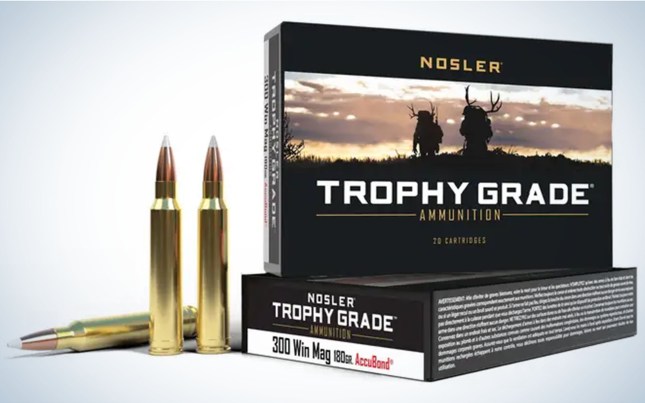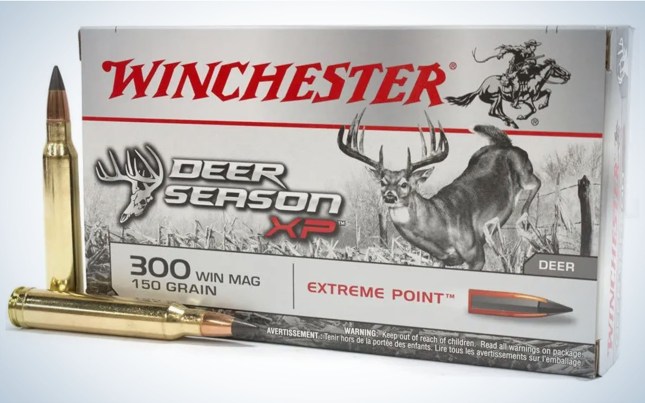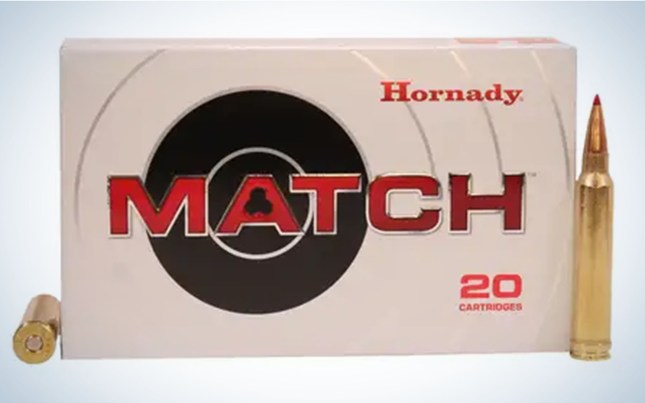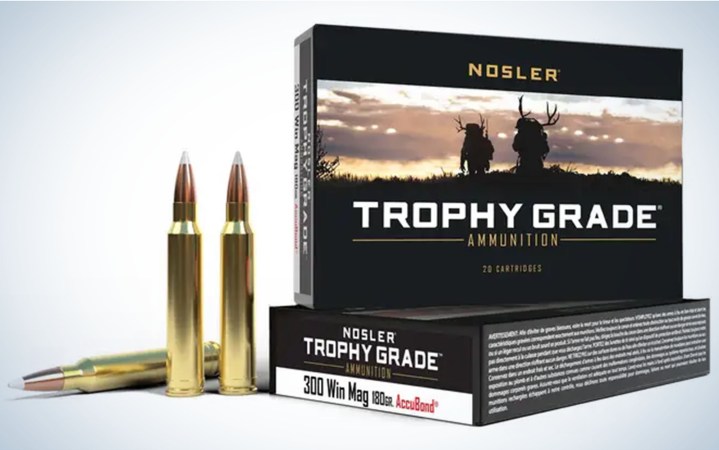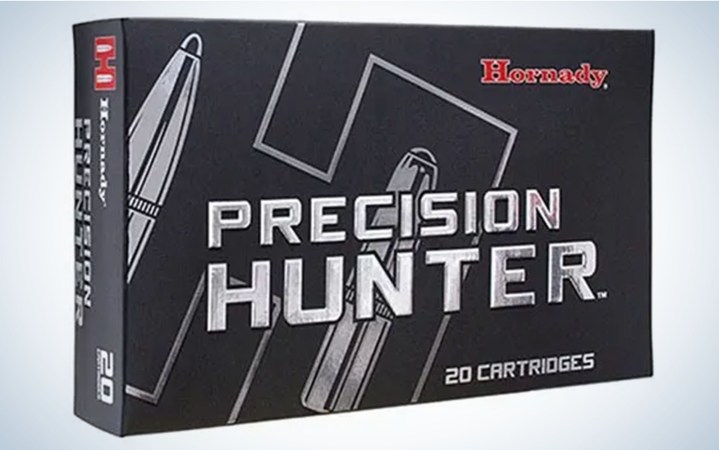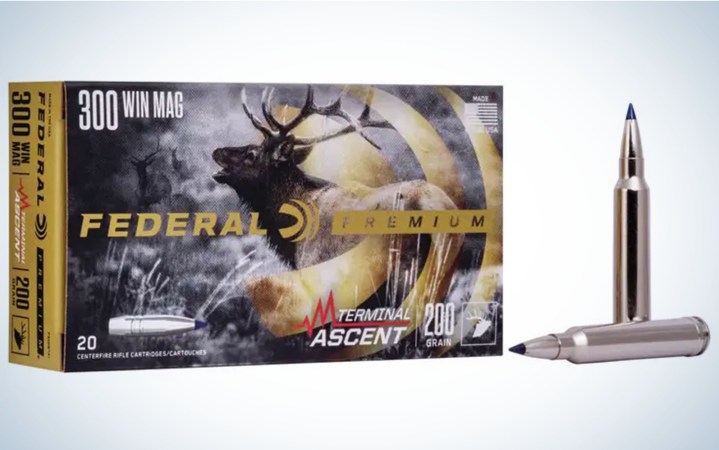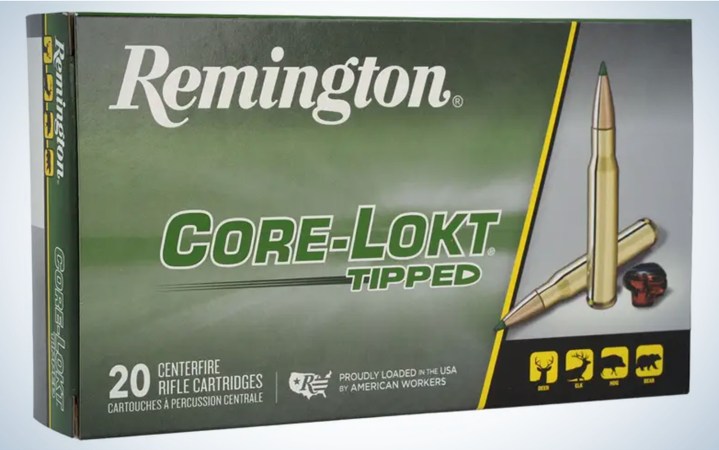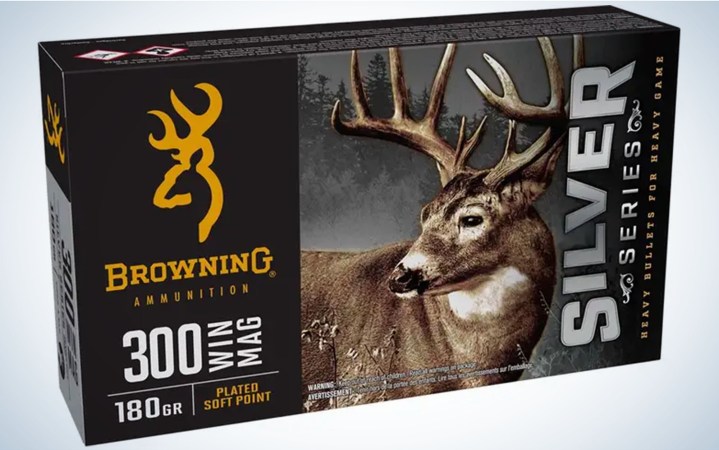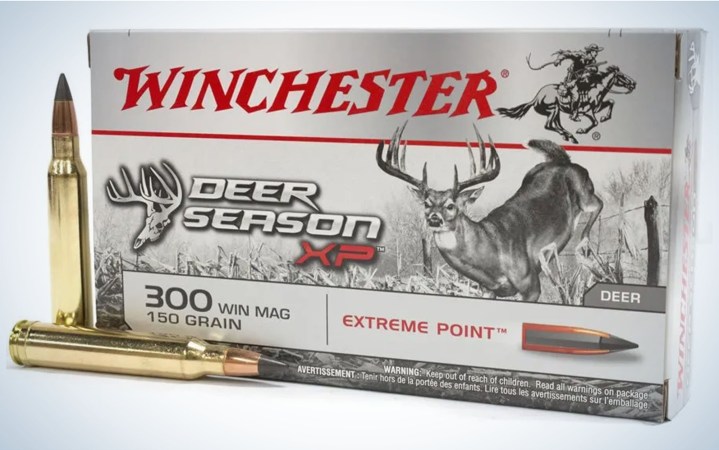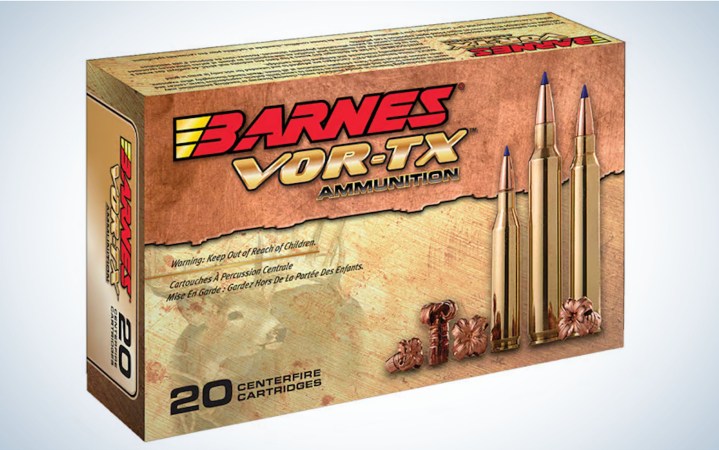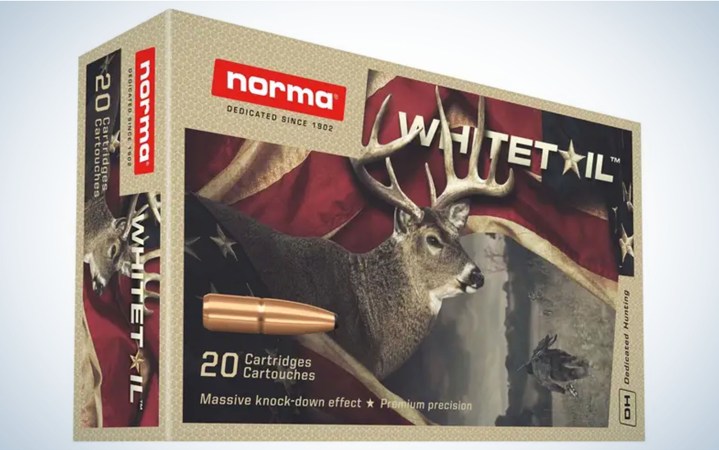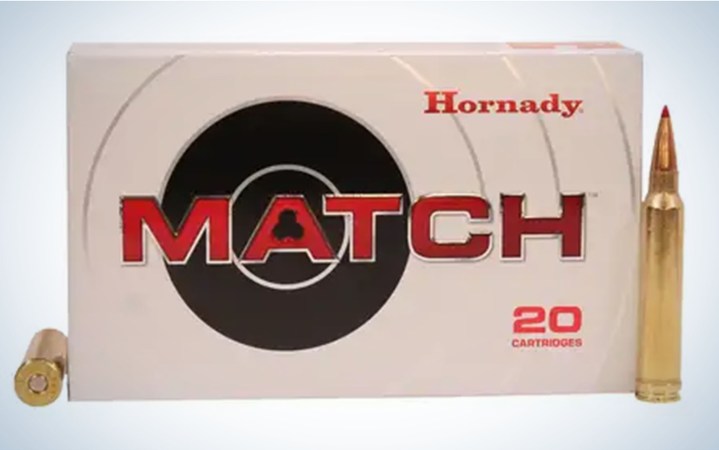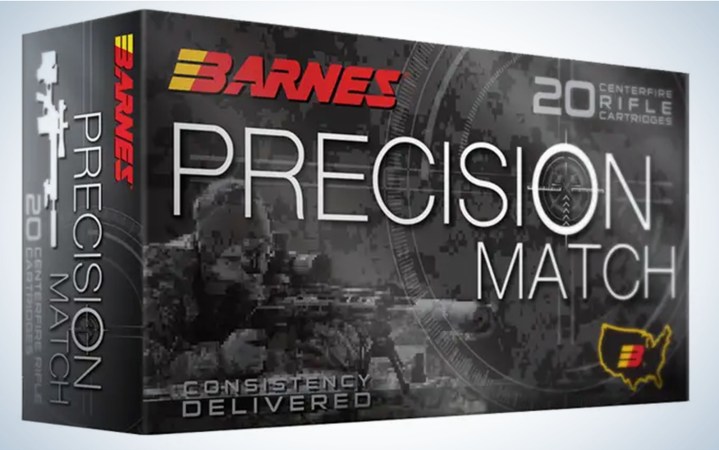We may earn revenue from the products available on this page and participate in affiliate programs. Learn More ›
Few cartridges have withstood the test of time with such respect as the venerable .300 Winchester Magnum. Since its inception in 1963, the Win. Mag. has built a reputation as the “do-all” cartridge, and the best .300 Win. Mag. ammo has taken down everything from dainty pronghorn to massive moose and bears with authority. The .300 Win. Mag. also has applications in long-range target shooting and it’s used across multiple branches of the military.
The .300 Winchester Magnum’s versatility comes from the wide range of bullet configurations currently available. Bullet weights for factory loaded ammunition range anywhere from 150 grains on up to 220 grains and every major ammunition manufacturer has multiple options to choose from. Because there are so many variations, narrowing down the “best .300 Win. Mag. ammo” is sure to ruffle some feathers.
But after years as a professional Western hunting guide, gun writer, and dedicated big-game hunter, I’ve had the opportunity to see many variations of .300 Win. Mag. ammo at work in the field. Below are my personal picks for .300 Win. Mag. ammunition options for different hunting and shooting applications.
Best .300 Win. Mag Ammo for Big Game
- Best Overall: Nosler Trophy Grade 180-grain AccuBond
- Hornady Precision Hunter 200-grain ELD-X
- Federal Premium Terminal Ascent 200-grain
- Remington Core-Lokt Tipped 180-grain
- Browning Silver Series 180-grain
Best .300 Win. Mag. Ammunition for Deer
Best .300 Win. Mag. Ammunition for Target Shooting
- Best Overall: Hornady 195-grain ELD Match
- Barnes 220-grain Precision Match
How I Chose the Best .300 Win. Mag. Ammunition
Choosing the “best” .300 Win. Mag. ammunition is no easy task given the plethora of excellent options to choose from. Having guided mule deer, elk, antelope, and moose hunts for the last decade I have had the opportunity to observe terminal performance of various cartridges and bullets on hundreds of animals. Many of those critters were taken with the .300 Win. Mag. I used these experiences to choose what I believe to be best options for taking down various game animals .300 Win. Mag. loads.
Best .300 Win. Mag Ammo for Big Game
Best Overall: Nosler Trophy Grade 180-grain AccuBond
Best Overall
Nosler Trophy Grade 180-grain AccuBond
Why It Made the Cut
The 180-grain Accubond, loaded in Nosler’s Trophy Grade line, is a perfect combination of bullet expansion and penetration.
Key Features
- Bullet: 180-grain Accubond
- Copper-alloy jacket bonded with lead-alloy core
- Muzzle velocity: 2950 fps
- $102 per box of 20 rounds
Pros
- Proven deadly track record
- Exceptional penetration
- High percentage of bullet weight retention
- Nosler Custom brass (great for reloading)
Cons
- Expensive
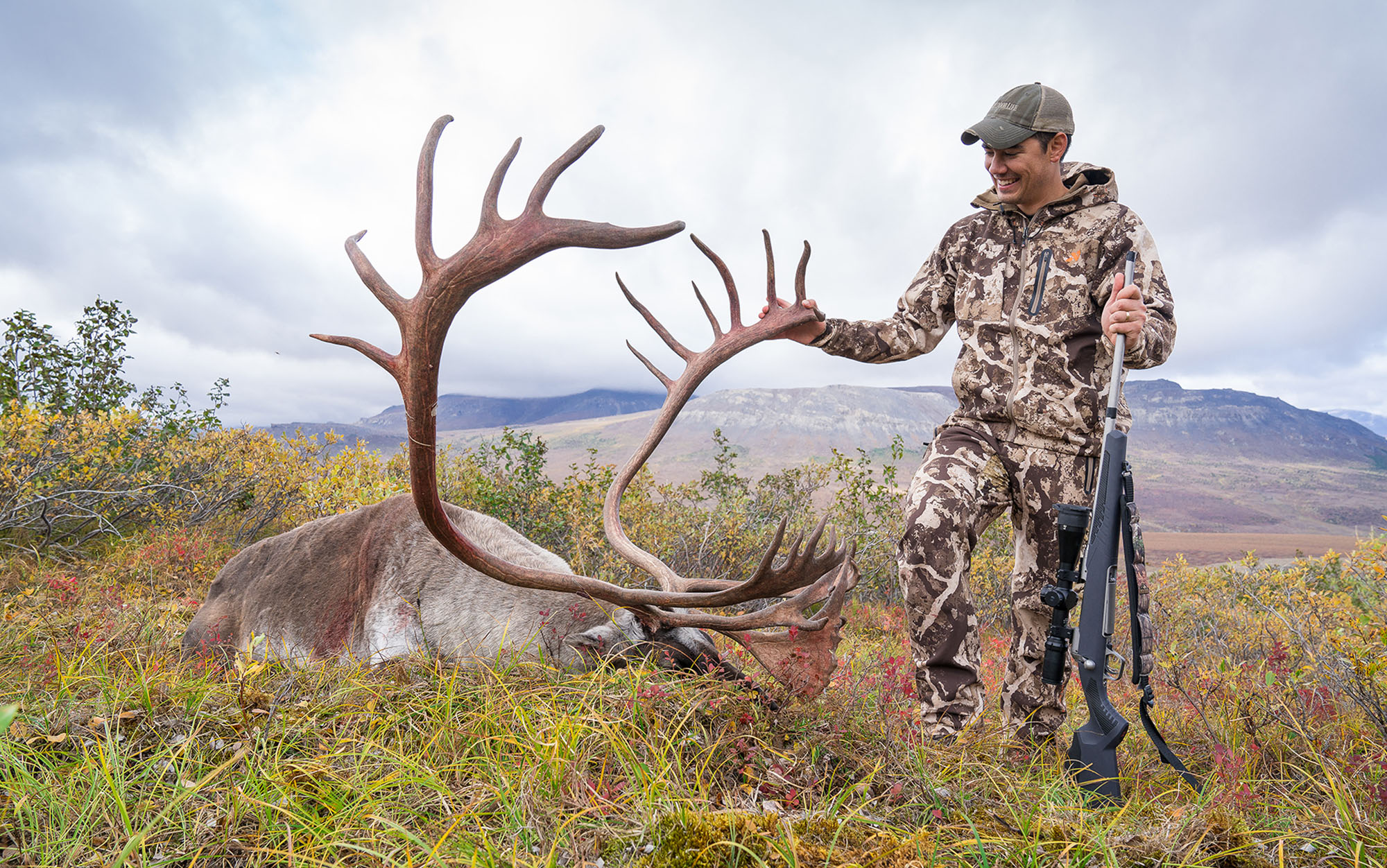
Trophy Grade ammunition, loaded with Nosler AccuBond bullets has gained notoriety as one of the premier hunting ammunition lines on the market. With a 180-grain AccuBond, hunters can confidently take down the biggest game in North America with bone crushing authority.
The AccuBond bullet may be the selling point for this load, but there is more to it than that. All Trophy Grade ammunition utilize Nosler’s Custom brass and are meticulously loaded with high-performance powders. Nosler also takes their quality control seriously, hand inspecting each round before boxing them. Whether you are on a once-in-a-lifetime moose hunt in the Yukon or chasing mule deer in the brush country of Wyoming, Nosler’s Trophy Grade ammunition loaded with the 180-grain AccuBond is up for the job.
Hornady Precision Hunter 200-grain ELD-X
Hornady Precision Hunter 200-grain ELD-X
Why It Made the Cut
Hornady’s 200-grain ELD-X projectile, loaded in their Precision Hunter line, delivers terminal performance with match-grade accuracy.
Key Features
- 200-grain ELD-X
- Heat Shield tip
- Velocity: 2850 fps
- $60 per box of 20 rounds
Pros
- High BC: .597 (G1)
- Controlled expansion and extended distances
- Terminal performance at all ranges (within reason)
- Flat shooting
Cons
- Bullet will fragment more when shot at closer distances
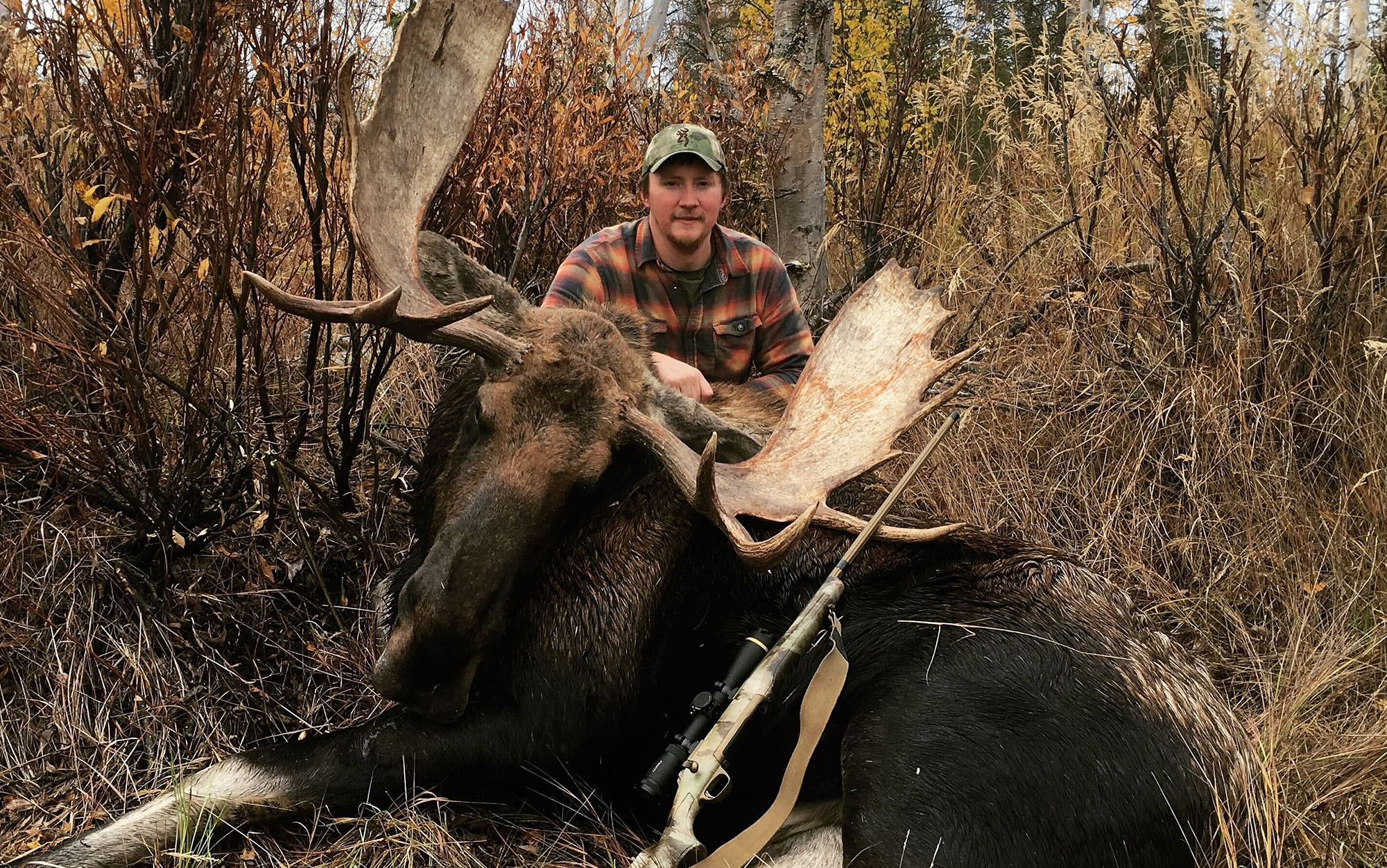
The Precision Hunter line, loaded with a 200-gr. ELD-X bullet and fired out of a .300 Win. Mag., is a match made in heaven for western big game hunters. Inside 400-yards, the ELD-X delivers devastating blows with continued expansion through the intended target. On many occasions I have found the expanded ELD-X jacket and lead core just underneath the hide on the offside, demonstrating the ideal balance of penetration and bullet expansion. Beyond 400-yards, Hornady’s Heat Shield tip initiates a controlled expansion on impact in a mushroom-like configuration to maximize penetration at those lower velocities.
Personally, I have seen the 200-gr. ELD-X fired out of a .300 Win. Mag take down multiple elk and mule deer, and I have no doubt that this combination would have a similar result on a massive bull moose. Hunters can head afield with confidence knowing that proven accuracy and terminal performance lie at the core of Hornady’s Precision Hunter line.
Federal Premium Terminal Ascent 200-grain
Federal Premium Terminal Ascent 200-grain
Why It Made the Cut
Federal’s 200-grain Terminal Ascent, loaded for the .300 Win. Mag., offers the highest in-class ballistic coefficient, laying the groundwork for match-grade accuracy and downrange terminal performance.
Key Features
- 200-grain Terminal Ascent
- Copper jacket bonded with lead core
- 2810 fps
- $75 per box of 20 rounds
Pros
- Extremely high BC: .608 (G1)
- Slipstream polymer tip
- Accurate
Cons
- On the expensive end of the price spectrum
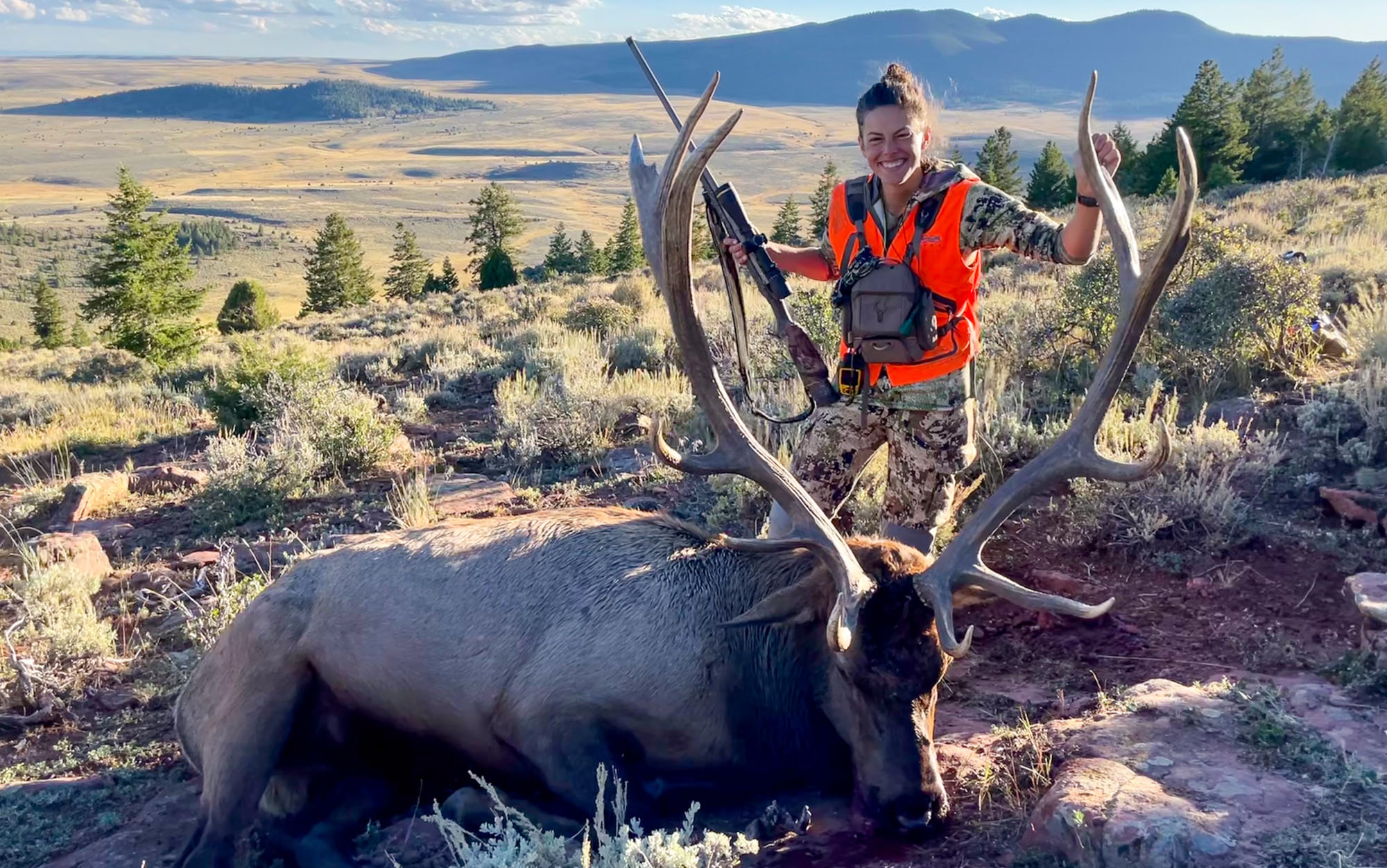
The Terminal Ascent bullet is relatively new to the market but is quickly gaining steam for its inherently accurate properties and its devastating downrange terminal performance. Loaded with a 200-grain Terminal Ascent, your favorite .300 Win. Mag. is transformed into a true do-all rifle, including the ability to take down the mighty bruins of the North.
The extremely high BC, paired with the Slipstream polymer tip and AccuChannel Groove technology, allow the 200-grain Terminal Ascent projectile to buck wind and deliver ample energy at distances near and far. Even at 500 yards, the 200-grain bullet still carries nearly 2,000 foot-pounds of energy – more than enough to take down elk- and moose-sized beasts. While the Terminal Ascent may be the new kid on the block, I am confident this will be a bullet and cartridge combination that will be around for many, many years.
Remington Core-Lokt Tipped 180-grain
Remington Core-Lokt Tipped 180-grain
Why It Made the Cut
Remington came out swinging with the launch of their new Core-Lokt Tipped ammunition line which includes a very capable 180-grain offering for the .300 Win. Mag.
Key Features
- 180-grain Core-Lokt Tipped
- Core-Lokt Jacket with lead core
- 2980 fps
- $65 per box of 20 rounds
Pros
- Large green polymer tip improves long-range ballistics
- Rapid bullet expansion
- Improved accuracy
Cons
- Relatively low BC compared to others in this class – .481 (G1)
Remington’s tried-and-true Core-Lokt ammunition that hunters have known and loved for decades received a welcomed facelift with the addition of the new Core-Lokt Tipped ammunition. The addition of a green polymer tip may seem insignificant, but I can assure you it is anything but. The polymer tip increases accuracy potential, cuts through the wind, and helps initiate bullet expansion on impact.
What the new green tip does not change is the proven terminal performance of the Core-Lokt bullet. Bullet penetration and expansion have never been an issue for Core-Lokt users. However, engineers took things one step further with the new bullets and fine-tuned the Core-Lokt jacket to optimize performance on big game of all shapes and sizes.
Browning Silver Series 180-grain
Browning Silver Series 180-grain
Why It Made the Cut
Browning’s Silver Series ammunition line offers hunters a 180-grain .300 Win. Mag. capable of taking down the biggest game in North America.
Key Features
- 180-grain precision plated soft-point
- 2960 fps
- $48 per box of 20 rounds
Pros
- Deep penetrating
- Corrosion resistant
- Soft point bullets have proven their terminal worth for decades
Cons
- Not intended for long-range shooting (.438 G1 BC)
Browning’s new Silver Series ammunition line is a modern take on the tried, tested, and proven soft-point bullet design. The new ammunition includes a sleek precision plated soft-point bullet to increase accuracy, maximize corrosion resistance, and provide smooth feeding into the action.
The 180-gr. .300 Win. Mag offering is ideal for shots inside 400-yards when penetration is of the utmost importance. But don’t be misled, this combination also doubles as a fantastic deer load, especially for rutted-up, late-season bucks.
Best .300 Win. Mag. Ammunition for Deer
Best Overall: Winchester Deer Season XP 150-grain
Best Overall
Winchester Deer Season XP 150-grain
Why It Made the Cut
Winchester’s wildly popular Deer Season XP ammunition line features a 150-grain .300 Win. Mag. offering that is extremely effective at killing deer-sized game.
Key Features
- 150-grain tapered copper jacket with alloyed lead core
- Large diameter polymer tip
- 3,260 fps
- $50 per box of 20 rounds
Pros
- Rapid bullet expansion on impact
- Streamlined ballistic profile
Cons
- Rapid expansion would hinder performance on animals larger than deer
Winchester’s Deer Season XP is not a new lineup, nor is its 150-grain offering for the .300 Win. Mag. However, it has rightfully earned its spot as one of the best .300 Win. Mag. ammo options on the market with countless avid deer hunters relying on its terminal performance every fall.
The key component to the Deer Season XP line is the oversized polymer tip that accelerates bullet expansion and initiates trauma on impact. The result is an immense amount of energy being dumped into the deer and devastating internal damage. The streamlined profile also helps aid in accuracy and maintain a relatively flat trajectory to 300-yards. The results do not lie and Winchester’s 150-grain .300 Win. Mag. Deer Season XP ammunition is a proven deer killer.
Barnes VOR-TX 150-grain
Barnes VOR-TX 150-grain
Why It Made the Cut
Barnes Bullets VOR-TX ammunition line, loaded with a 150-grain TTSX and fired out of a .300 Win. Mag., is a flat-shooting and hard-hitting combination.
Key Features
- 150-grain Barnes Tipped Triple Shock
- Monolithic copper bullet
- 3285 fps
- $64 per box of 20 rounds
Pros
- Flat bullet trajectory
- Lead-free
- Ideal for deer-sized game
Cons
- On the light side for bigger-boned game animals
Monolithic copper bullets have gained momentum in recent years due to their undeniable ability to penetrate dense muscle and break bones. The Vor-TX 150-grain .300 Win. Mag. from Barnes Bullets is an ideal choice for pronghorn and deer, but that is not to say it couldn’t tackle game much bigger. No doubt it would kill an elk with proper shot placement, but if elk is your primary target each year, I would lean towards one of the heavy-weight options previously mentioned.
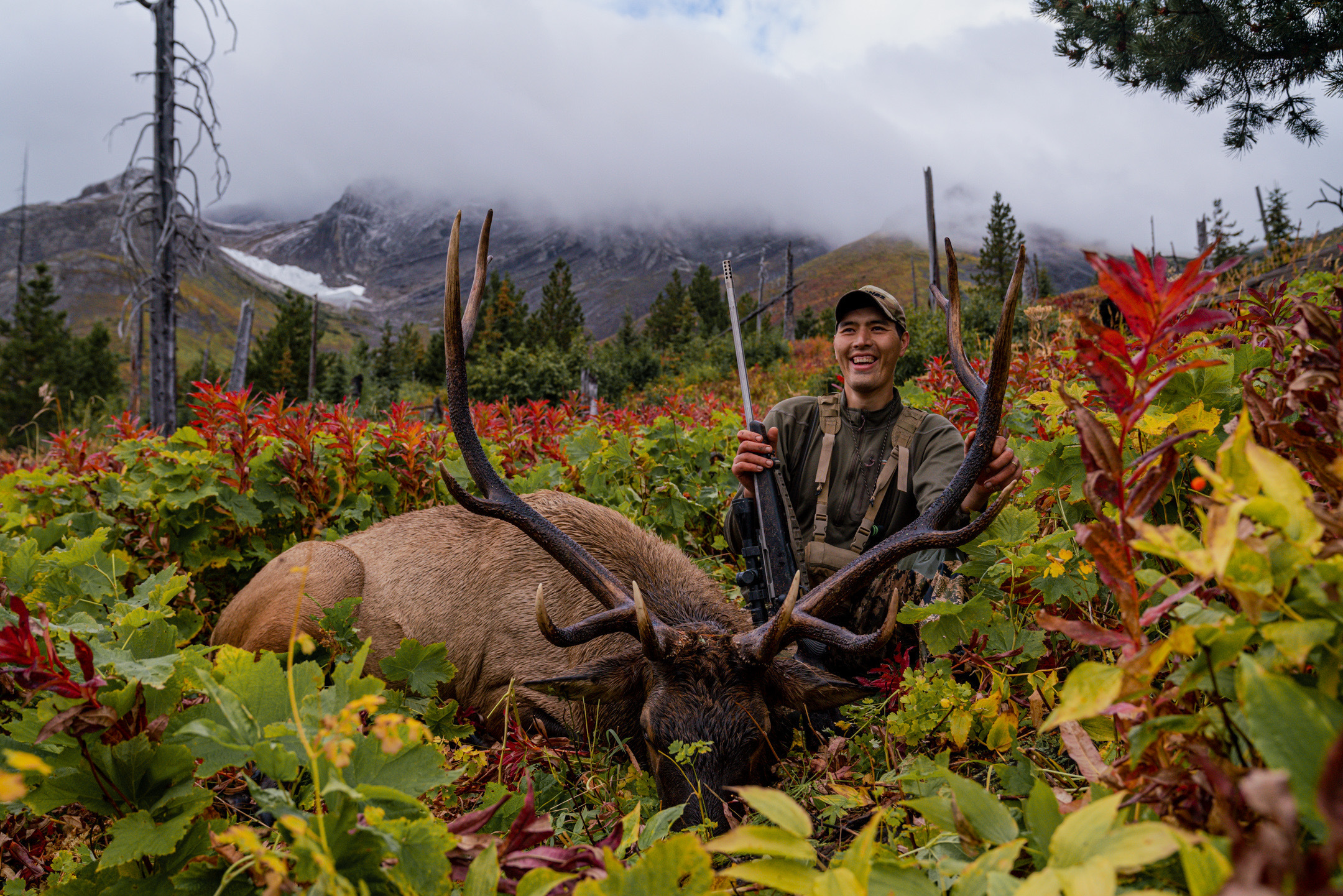
The blazing speed of the 150-grain TTSX provides hunters a flat trajectory inside 300 yards and plenty of downrange energy to transfer into your target. The TTSX bullet also increases accuracy and creates a faster expansion rate to optimize the shock and damage inside the cavity, resulting in quick, clean kills.
Norma Whitetail 150-grain
Norma Whitetail 150-grain
Why It Made the Cut
The 150-grain .300 Win. Mag. load from Norma’s Whitetail ammunition delivers a deadly soft-point bullet at blistering speeds resulting in short blood trails.
Key Features
- 150-grain jacketed soft-point
- 3,248 fps
- $45 per box of 20 rounds
Pros
- Uses premium Norma Brass
- Consistent accuracy
Cons
- Not great for long-range shooting
As the name suggests, the rapid expansion of Norma’s soft-point bullet, loaded in their Whitetail line, is ideal for transferring massive amounts of energy into deer-sized game. The 150-gr. .300 Win. Mag. Norma Whitetail load consistently produces accurate results but due to its rather low BC and exposed lead tip design, your best results with this load will take place inside 300 yards.
If you are a reloader, be sure to hang on to your brass. Norma’s Whitetail ammunition line utilizes Norma manufactured brass which has long been recognized as some of the best in the business. The avid deer hunter will not be disappointed with the accuracy and terminal performance from Norma’s 150-grain .300 Win. Mag. ammunition.
Best .300 Win. Mag. Ammunition for Target Shooting
Best Overall: Hornady 195-grain ELD Match
Best Overall
Hornady 195-grain ELD Match
Why It Made the Cut
Hornady’s ELD-M line of match bullets has a proven track record of success in long range shooting competition. Though the .300 Win. Mag. isn’t as popular as it was decades ago in long-range matches, the 195-grain ELD-M is a balanced selection for someone looking for pinpoint precision from the round.
Key Features
- 195-grain ELD Match
- Heat Shield tip
- 2,930 fps
- $63 per box of 20 rounds
Pros
- Extremely accurate
- Strict quality control
- Dual purpose hunting bullet
Cons
- Carries a premium price tag
Hornady’s 195-grain ELD Match ammunition is proof that accuracy does not happen by chance. Starting with the Heat Shield tip on down to the aerodynamic bullet design, carefully selected cases and meticulously loaded powder charges, engineers at Hornady designed every inch of this ammunition to produce precision and give shooters an edge on the range and in the field.
It is also worth noting that while the ELD Match bullet is specifically designed for shooting steel, it also doubles as a very capable hunting bullet.
Barnes 220-grain Precision Match
Barnes 220-grain Precision Match
Why It Made the Cut
Barnes Bullets’ 220-gr. .300 Win. Mag. Precision Match ammunition meets rigorous accuracy demands, making it impossible to overlook when searching for the best target load for your .300 Win. Mag.
Key Features
- 220-grain Open Tip Match
- Jacketed hollow point
- 2775 FPS
- $67.00 per box of 20 rounds
Pros
- Extremely high BC: .611 (G1)
- Proven precision
- Low standard deviations
Cons
- Fairly hefty recoil for a target round
- Not lead free like most other offerings from Barnes
Barnes Bullets is most well known for their solid monolithic copper bullets. However, the Precision Match ammunition shakes things up a bit and features a jacketed hollow-point projectile with a lead core. The Precision Match ammunition is manufactured with the utmost importance put on quality control to ensure pinpoint accuracy with every trigger pull. Given the ridiculous .611 G1 BC, competitors can shoot with confidence that the 220-gr. pill will fly true and buck wind better than most.
Things to Consider Before Buying .300 Win. Mag. Ammunition
Application and Use
When purchasing .300 Win. Mag. ammunition, first you must decide upon your intended use. If you’re hunting extra-large game like grizzly bears or moose then you’ll want to lean toward a heavier bullet that is constructed to optimize penetration and bone breaking capabilities. If you’re after mid-size game like deer, you’ll want a lighter bullet designed for rapid expansion. Target shooters will lean toward heavier projectiles with extremely high BC’s.
Cost
Unfortunately, like everything else, the cost of ammunition has continued to climb. Because of the wide variety of .300 Win. Mag. ammo, prices vary from $30 on up to $100-plus per box of 20 rounds. The type and weight of the projectile as well as the quality of brass are the primary factors that drive cost. The good news is that the widespread popularity of the .300 Win. Mag. keeps manufacturers busy and there’s a good chance you’ll find it on store shelves.
FAQs
The cost of .300 Win. Mag. ammo will vary depending on your intended use, bullet weight, and bullet design. On the low-end, a box of .300 Win. Mag ammo will run about $35 per box of 20 rounds. On the high end you could pay north of $100 for a box.
The answer to this question is subjective based on your intended use. When hunting deer-sized game just about any expanding projectile will work, but rapidly expanding bullets will initiate the most trauma. On bigger game such as elk, bear, and moose, you will want to select a bullet that emphasizes durability and penetration, such as a bonded or monolithic bullet.
“Best” will be determined by the individual shooter but I typically live by the motto that “you get what you pay for.” Nosler, Hornady, and Federal are great manufacturers to start with.
Final Thoughts on the Best .300 Win. Mag. Ammunition
For magnum cartridges, the .300 Win. is arguably the most versatile on the market. But just like any other cartridge, it has its flaws. The .300 Win. Mag. produces stout recoil and is typically chambered in heavier rifles. As an older cartridge, it doesn’t benefit from the principles of modern cartridge design.
But no one would argue that the .300 Win. Mag. isn’t an excellent choice for big-game hunting. I have my own personal preferences on the best .300 Win. Mag. ammo based on what I have seen in the field, but there are many other very good options to choose from. If you don’t like my first choice for big-game hunting, deer hunting, or target shooting, simply go down the list until you find one that you can shoot with confidence.
